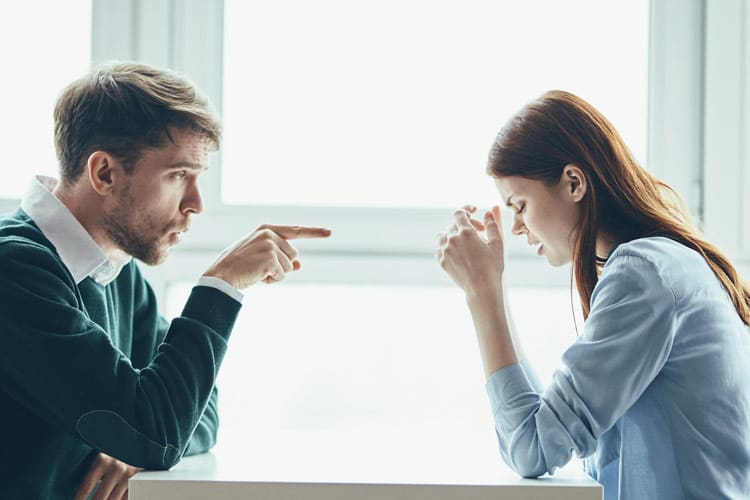It’s not uncommon to have people in your life who are difficult to get along with. Often, we can minimize contact with these people and tolerate them when necessary. But sometimes we can get stuck in a difficult relationship that is not so easy to avoid. Toxic relationships can lead to emotional damage, exhaustion, and poor decision-making. For someone in addiction recovery, they can lead to relapse. So what is the best way to handle a toxic relationship?
Safety First
Before going any further, we want to emphasize that any relationship that involves violence and threatens your physical safety is not an option. In the U.S., over 10 million adults experience domestic violence each year, according to the National Coalition Against Domestic Violence. If you are a victim of domestic violence, leaving that relationship is the only way to guarantee your safety and reclaim your mental and physical health. Call for help today.
Signs of a Toxic Relationship
Physical violence aside, relationships can still be characterized by emotional violence or toxicity that can cause lasting emotional and psychological damage. Some signs of a toxic relationship include:
- Toxic communication, such as yelling, name-calling, hateful words, or hurtful statements, especially consistently
- Fear of speaking up
- Dishonesty, lack of trust
- Jealousy
- Lack of support, all take and no give
- Hostility
- Resentment
Even if you can’t imagine your life without the person, staying in the relationship can do more harm than good.
Can You Fix a Bad Relationship?
No relationship is perfect. Marriage and partnership are especially complicated relationships that are often characterized by unhealthy patterns. When both partners are aware of the problems and willing to work at correcting them, things can get better. That’s especially true if you are working with a therapist.
A truly toxic relationship is one in which one or both people are unwilling to change their toxic behavior patterns. One person ends up feeling used and abused while the other one manipulates, blames, and takes advantage.
Drug and alcohol use do not mix well with relationships. Sometimes a relationship leads to drug and alcohol use as a way to escape the pain. Sometimes, one person’s drug and alcohol use makes the other person feel alienated. Addiction only hurts the relationship even more.
Being in recovery can make you see more clearly the unhealthiness of your family or partner relationships. You will have to decide whether those toxic patterns threaten your sobriety. If they do, you’ll know it’s time to seek help in managing–or distancing yourself from–those relationships.
Why a Person in Addiction Recovery Needs to Remove Toxic Relationships
It’s not necessary for everyone in your life to be super supportive and always cheering for you on the sidelines (though that’s a good thing when it happens!). Yet, toxic relationships can fuel negative thought patterns that lead to complexities in addiction recovery, including relapse. Consider a few examples:
- Relationship stress triggers the desire to use drugs or alcohol.
- Being in a relationship with someone who drinks or uses drugs can trigger a relapse.
- Abusive relationships chip away at self-esteem, which can also trigger relapse.
Any relationship that makes you want to use drugs or alcohol again is one that you will probably want to avoid or put on hold.
How to Get Past Toxic Relationships
In some situations, it may be possible just to walk away from the relationship. You can just tell the person that you are protecting your health and well-being.
Most often, toxic relationships are much too complex to just walk away from. A good place to start is with a therapist. Your therapist can listen to what you are experiencing and offer insight and advice on how to manage the situation.
Recovering from alcohol or drug addiction is a big step, and it is hard work on its own. Don’t put your recovery on the line for the sake of someone who is not willing to change.




